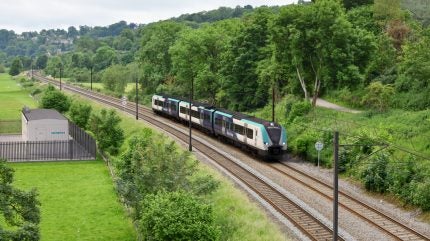
Siemens Mobility has claimed that battery technology should mean diesel trains are ‘consigned to history’ and encouraged UK rail operators to look at zero emissions trains when replacing old diesel fleets.
The rail manufacturer said its new battery bi-mode trains could save £3.5bn ($4.4bn) for the UK rail network by 2060 by only requiring small sections of its rail lines to be electrified.

Discover B2B Marketing That Performs
Combine business intelligence and editorial excellence to reach engaged professionals across 36 leading media platforms.
Joint CEO Sambit Banerjee said: “Britain should never have to buy a diesel passenger train again. Our battery trains, which we’d assemble in our new Goole factory in Yorkshire, can replace Britain’s ageing diesel trains without us having to electrify hundreds of miles more track in the next few years.”
The company said its analysis found the use of battery mi-mode trains would only require 20-30% of a line to be electrified with overhead line equipment (OLE) and would be more efficient than tri-mode trains using diesel, battery and electric power by quick charging during station stops or while travelling under OLE.
Additionally, Siemens’ research claims that battery bi-mode trains would reduce CO2 emissions by 12 million tonnes over 35 years, further supporting the UK Government’s ambition of removing diesel-only trains from the rail network by 2040.
The claims come shortly after Hitachi Rail celebrated testing of the UK’s first intercity train converted from diesel to battery-electric power, further boosting the profile of battery trains in the country.

US Tariffs are shifting - will you react or anticipate?
Don’t let policy changes catch you off guard. Stay proactive with real-time data and expert analysis.
By GlobalDataAlso, in October 2023, the UK welcomed its first battery-powered fleet with the launch of the Liverpool City Region’s Class 777 trains, which can operate without a third rail.





